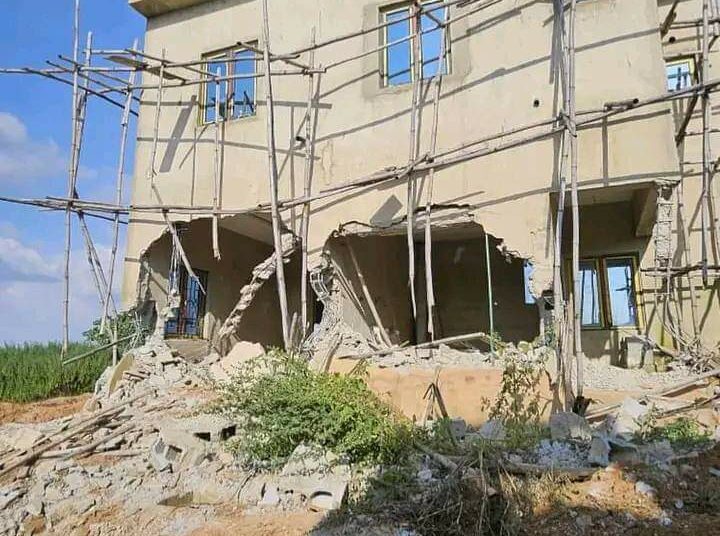The Housing Development Advocacy Network (HDAN) has made an urgent appeal to the Federal Capital Territory (FCT) Minister, Nyesom Wike, to reconsider the ongoing demolition of illegal housing estates in Abuja.
In a bid for more sustainable urban management, HDAN is advocating for a confiscation and repurposing approach, which would see properties redirected toward essential housing needs of Nigerians rather than being demolished.
Speaking to journalists at a demolition site in Lugbe, HDAN’s Executive Director, Festus Adebayo, raised concerns over the economic impact of demolishing valuable assets. “Demolishing entire estate is a colossal waste, especially in the current economy,” Adebayo remarked.
He underscored the need for alternative strategies that retain and repurpose properties for societal benefit.
He further condemned the situation, saying FCT officials who, through fake approvals and permits, allowed such developments to proliferate must be sanctioned to ensure accountability.
As a solution, HDAN has also proposed that confiscated properties could serve as essential housing for key workers, including doctors, journalists, and public servants if it is possible as there may be other barriers that will not make this achievable. “Rather than tearing down these estates, we should consider transforming them into workforce housing estates,” Adebayo suggested.
He pointed to recent government projects, like the judges’ estate, as an example.
HDAN also called for the probe of FCDA site officers in permitting the illegal developments, questioning the transparency and accountability of Abuja’s land management system. “If the developers have lost their estates, those site officers who allowed the buildings to reach that level must also be punished.”
Adebayo emphasised the need for a unified city plan, urging the release of the Phase Five Abuja City Development Plan, which has been pending and could help prevent future unauthorised developments.
“There must be collaboration among agencies of government involved in the city development including the Municipal Area Council and FCDA to avoid chaos and fostering fraud in land acquisition and real estate development,” Adebayo observed.
“Also, the Urban and Regional Planning Department must do more in collaborating with development control even though they are under different supervisions.”
He warned that the ongoing demolitions not only harm developers and homeowners but could also dampen real estate investment in Abuja, with potential ripple effects across Nigeria’s economy.
HDAN’s call to action was that the FCT Administration should prioritise constructive dialogue and rethink the demolition strategy in favour of solutions that can enhance investments in housing and infrastructure and promote economic growth.










